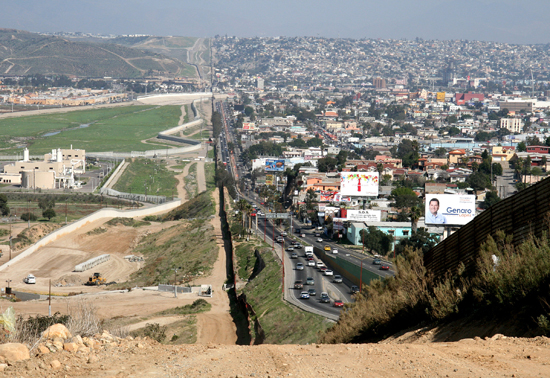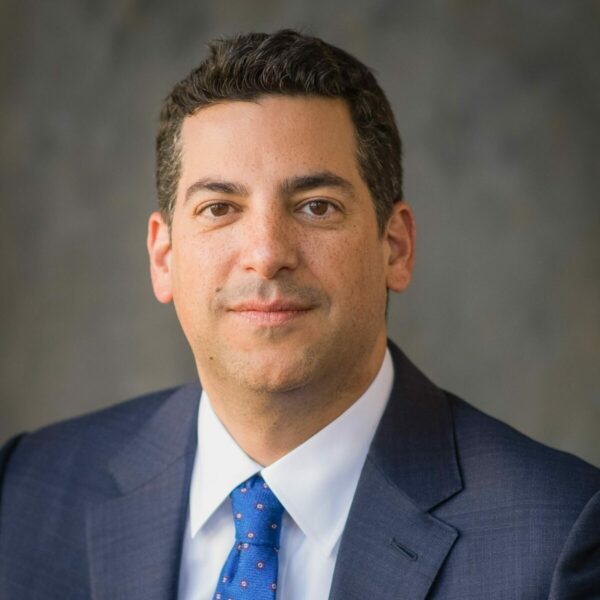
By Jeb Bush and Clint Bolick
The Wall Street Journal
In recent months, tens of thousands of young Central American refugees have illegally poured across the U.S-Mexico border. It is the latest consequence of the failure of President Obama and Congress to overhaul America’s broken immigration system.
This is not a new phenomenon. A recent confluence of factors has exacerbated the problem, increasing the number of people, specifically children, chancing this risky and life-threatening journey.
There is a reason and a need for compassion. These children are trying to escape horrific gang violence and dire conditions in their native countries. But the ease with which so many of them are illegally entering the U.S. underscores the inadequacy of our border security. We now have a humanitarian crisis on our southern border that demands strong leadership that respects the rule of law.
Despite President Obama’s reassurances, few of these children are likely to return home if nothing changes. This is partly due to the well-intentioned William Wilberforce Trafficking Victims Protection Reauthorization Act of 2008, designed to aid victims of sex trafficking. While children who enter the U.S. illegally from Mexico are sent back, the law provides that children from certain other countries must be turned over to the Department of Health and Human Services and are entitled to basic services and an immigration hearing.
Central American migrants atop a freight train in Mexico, heading north, July 12. Associated Press
President Obama has asked for $3.7 billion to address this crisis. But he has failed to call for a change in the law, to engage across party lines or to take sufficient steps to keep more children from coming.
Members of Congress have offered more pragmatic ideas. House Speaker John Boehner has called for the deployment of National Guard troops to reinforce border security, a step Texas Gov. Rick Perry set in motion this week. Legislation by Sens. John McCain and Jeff Flake and Rep. Matt Salmon —all from Arizona, to which thousands of the children have been sent—have introduced bills to treat all illegal immigrants entering through Mexico in the same way, thus allowing for their immediate return to their native countries. The McCain-Flake legislation also would increase by 5,000 the number of humanitarian visas available in each of the countries producing the diaspora—Guatemala, El Salvador and Honduras—thus providing an incentive for individuals to stay in their home country and pursue immigration legally.
Similarly, Texas Republican Sen. John Cornyn and his Democratic House colleague Rep. Henry Cuellar have proposed legislation that would improve the 2008 anti-trafficking law and expedite the hearing process for unaccompanied migrant children.
Currently the vast number of children is overwhelming the process. Roughly half do not show up for their hearings. As a result, judging by Homeland Security figures, only a fraction of the approximately 20,000 Central American children who entered the country illegally in 2013 were repatriated. By some estimates, as few as 2% of the 50,000 children who have crossed the border illegally this year have been sent home.
We must close loopholes that allow for individuals to be released from federal custody between hearings. Except for those deserving few who may demonstrate true cause for asylum or protection from sex trafficking, these children must be returned to their homes in Central America.
Next, we must aggressively remove the incentives that encourage people to break immigration laws. It is vital that we clearly communicate that there will be zero rewards for those who imperil the lives of children by sending them to the U.S. illegally. The children who have come here were provoked by adults and made to believe that crossing our border would be the key to their family’s escape from a life of poverty or danger. That must end.
We should pursue interdiction strategies that head off illegal immigration before it gets to our border. Mexico has recommitted to this effort, promising to tighten its border with Guatemala. While we hold Mexico to that pledge, let’s also explore additional ways we can partner on fighting trafficking cartels. Additionally, greater American engagement economically in Central America will create growth and opportunities at home for the very people who are seeking those things here.
Finally, preventing similar crises in the future begins with making our immigration system fair and effective now. A chief reason so many people are entering through the back door, so to speak, is that the front door is shut.
Unlike every other country, we do not have an immigration system as much as we have a family-reunification system. Nearly two-thirds of the one million lawful immigrants admitted into the U.S. each year do so through family preferences. That means that unless someone seeking to immigrate has a relative in America or can squeeze into the relative handful of available work-related or asylum visas, the only way they can enter is illegally.
The best antidote to illegal immigration is a functioning system of legal immigration. We must rebuild one that is economically driven—for example, looking for those whose skills and drive will make a difference—in our national interest and true to our immigrant heritage.
President Obama has promised to once again act unilaterally if Congress fails to take up immigration reform. Now is the time for House Republicans to demonstrate leadership on this issue. Congress should not use the present crisis as an excuse to defer comprehensive immigration reform. Whether President Obama is making health-care policy by fiat or using the Environmental Protection Agency to circumvent the lawmaking process, we have too often seen what happens when the president oversteps his constitutional authority. Avoiding similar disastrous results will require legislative action by both parties.
Mr. Bush is former governor of Florida. Mr. Bolick is vice president for litigation at the Goldwater Institute. They are co-authors of “Immigration Wars: Forging an American Solution” (Threshold Editions, 2013).











